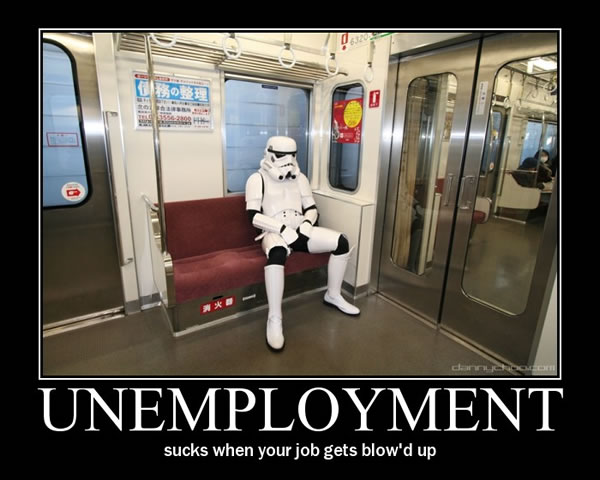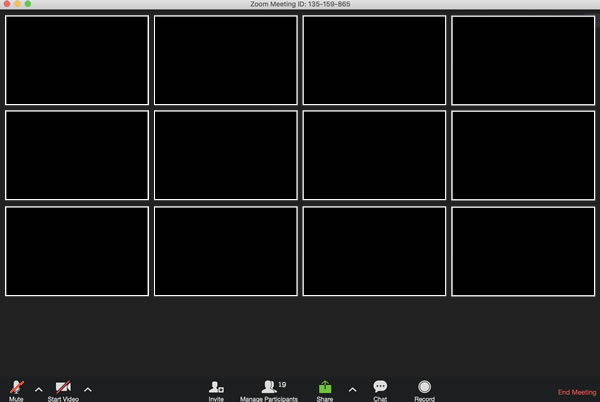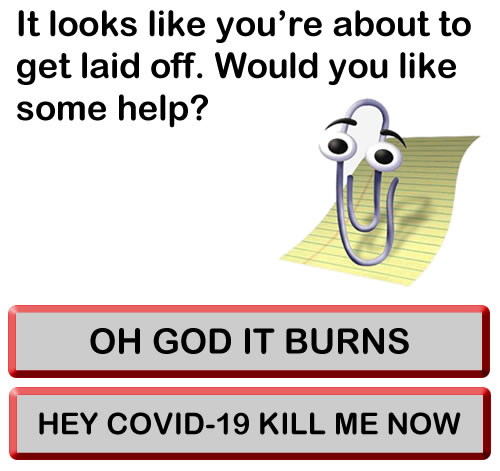
You’ll probably sense it coming
Tuesday, April 9, 2020 — 8:30 a.m.: I was setting up my gear on our screened-in front porch (pictured above). The neighborhood’s quiet enough that I can actually get work done there. The occasional neighbor passes by, running an errand or getting some exercise, and most of them wave or say hello. It might get too humid during the day in June and later on, but in April, it’s nice to work in the fresh air and greenery.
Tap the photo to see it at full size.
I build mobile apps, so my work is made easier with two laptops: One tasked with building the iOS version of the app, while the other was for building the Android version. I’d just plugged in the laptops and monitor when I got a message on Slack.
“Did u see the invite?” the message said. “Meeting w/ CEO at 9.”
“Just got online,” I replied. “Will reply ‘YES’. See you at 9.”
I didn’t think much of it until I switched to the company’s Google Calendar and read the invitation. Given by the CEO, and I couldn’t see the invitee list.
That’s when I got the nagging feeling that something was wrong.
I felt a little bit like Homer Simpson in that episode where the new German managers of the nuclear power plant wanted to have a chat with him:

Something about the way the call was set up — unusual time, unusual circumstances — gave me a vague sense of dread. Unfortunately, intuition isn’t a straight-forward thing like a warning light on your car’s dashboard or a pop-up window on your computer.
8:55 a.m.: I signed into the chat, following the “five minutes early is on time, on time is late” rule for meetings.
Time to test my hunch about this call. As a few more my co-workers entered the chat, I tapped the button to turn my camera on. Under normal circumstances, this wouldn’t be a problem — we typically had our cameras on for our remote meetings.

My camera came to life for a moment, but was quickly turned off remotely. “We’re, uh, going to do this one without video, and with everyone on mute,” it was announced.
That’s when I knew it was a layoff call.
A quick aside about intuition

Many people think that believing in intuition is like believing in psychics and other mental mumbo-jumbo, but there’s a fair bit of science that suggests otherwise. Daniel Kahneman, author of Thinking, Fast and Slow, argues that we have two systems that define the way we think:
- System 1: Fast, instinctive, and emotional
- System 2: Slow, deliberative, and logical
What we call instinct, hunches, or gut feelings comes from System 1. It’s the powerful pattern recognition that Malcolm Gladwell wrote about in Blink. When it happens, your brain is doing what computer scientists call massively parallel processing to “filling in the missing pieces” when you are presented with incomplete information. That’s why Poincare said “It is through science that we prove, but through intuition that we discover.”
Experience helps System 1 deal with missing information. I’d been laid off three times previously: in 2002, during the ragged edge of the dot-com bubble’s collapse, in 2008’s credit crisis, and in 2017, when the company I was working for slashed a lot of its workforce (it was recently acquired by one of its competitors). While the circumstances differed for each layoff, the meetings in which I was told that I was being let go all followed the same pattern.
Your intuition can be trained, and the best way to train it is to experience things. Unfortunately, the way to train your experience to detect bad things before they get to you is to experience bad things.
The one sure sign that it’s a layoff meeting

Layoff meetings are high-priority last-minute meetings with little notice and no agenda (well, no agenda that you’re given, anyway).
The general consensus among HR people whom I’ve talked to on the topic is that layoff meetings should be unexpected and scheduled with as little advance notice as possible. They’re typically set up the way I experienced them: a last-minute meeting, held as early in the day as scheduling and other issues will allow, and preferably not before a weekend or holiday.

Another hint that it’s a layoff meeting is the presence of unusual attendees — typically HR people (unless you work in HR), or “The Bobs”, which is my personal term for outside consultants that larger companies bring in to assist with downsizing (the term comes from the “efficiency experts” from the film Office Space).
The element of surprise helps blunt any angry or resentful reaction from employees, and I’m sure that it makes some people a little more pliant. This protection is doubly useful in a country where healthcare insurance is barbarically tied to employment, and triply so in a country where healthcare insurance is barbarically tied to employment during a time of record job losses and a pandemic.
Collect yourself

Do whatever it takes to steel yourself for the bad news. Whether it’s deep breathing, counting to ten, reciting your own personal mantra or firing up your “poker face”, you want to get ready to conduct yourself at the meeting with as much grace, aplomb and professionalism as you can muster.
You’re about to be in the second most important meeting you’ll ever have at this job.

(In case you were wondering, the most important one is the job interview.)
I used to work as a DJ at a popular campus pub at Crazy Go Nuts University. Both the atmosphere and the vantage point offered by the DJ booth gave me the opportunities to witness many breakups from a detached third-party point of view. Even at their best, breakups are pretty rough; when they get ugly, you can’t help but feel shame for the couple.
If you work for a decent company like I did, there’ll be one or more follow-up calls, and they’ll be face-to-face. Depending on the size of the company, it might be just your manager or your manager, some other management people, and HR.
No matter what you’re feeling at the meeting, you want your termination to be as good a breakup as possible. This means that you must handle it professionally.
The way you behave at this meeting will set the tone for your departure. If it is full of bitterness, acrimony, and the gnashing of teeth, they won’t be inclined to do you any favors. On the other hand, if you conduct yourself with grace and decorum, you may gain some extra concessions and a willingness on their part to do what they can for you.
If you can remember these questions through the stress of the meeting, you should ask questions like:
- When is my last day?
- What is my severance package?
- How long will my company insurance coverage last?
- When do I have to return the company laptop and other gear?
- What arrangements are being made so I can collect my stuff from the office?
- What do you want me to do with my current projects and files?
- Can I get a letter of recommendation and use you as a reference?
Don’t worry about memorizing these questions — just remember that you should leave the meeting with a clear idea of what they expect from you and what you can expect from them.
When they send you papers to sign, do not sign them immediately. You’ll be given time to look them over. Don’t look them over just yet.
Go for a walk or bike ride
Tap the photo to see it at full size.
This is going to sound terribly woo-woo new-agey, but I’m going to say it because it’s an important step: at your first opportunity, get away from whatever you’re doing, get out and go for a walk or a bike ride. Physical activity is a key part of this step, so don’t get into a motorized vehicle. A change of scenery is also important, so don’t just work out in whatever exercise space you’ve set up at home. You want to get moving, and you want to do it outside, preferably in your own neighborhood.
I opted for the bike ride — a 15K (9.3 miles) one all over my neck of the woods here in Tampa: Seminole Heights. The photos and videos in this section of the article are from that bike ride.
Tap the photo to see it at full size.
The walk is important because it gets you out of the house and gives you a chance to clear your head. Regular readers of this blog know that I’m usually an easy-going, “go with the flow” kind of guy who’s seen and done some pretty crazy things, and even I needed that walk. I felt twitchy and drained at the same time.
The walk gives you a chance to come down from one of the most stressful experiences you’ll ever face in your working life and come to terms with what’s happened. It is not the time for figuring out what your immediate next steps are; it is the time to collect yourself for figuring out what your next steps are.
Don’t do this in a fugue state. Take note of your surroundings. Take pictures. Record video. I did both, as you can see.
Chances are you’ll see things that you passed by every day, but never noticed before. This is good, because it’s preparation for what you’re going to be doing for the next little while: seeing things differently.
Deal with it…non-self-destructively
No matter how good a job you were doing or how well you served the company, and despite the fact that all this is being brought about by a virus (and let’s face it, the laughably piss-poor way the government handled it) over which most of us have little control, you’ll feel like this cat:

It will feel as if you had been weighed in the balance and found wanting. In fact, that may have happened. Perhaps you weren’t found wanting as a person or an employee, but when the bean-counters did the books, they did the math and determined that either you went or the company did.
Deal with the shame, using whatever constructive coping mechanisms work best for you. In my case, I hit the bike, made some lunch, did a little housework, played a little music on the ol’ squeezebox and got involved in some very severe grenade-launcher-assisted altercations in Grand Theft Auto V:
If you must, have a drink or two but don’t go beyond that. You want to take the edge off, not go on a binge.
You must come to this realization
Crank up your computer’s speakers and enjoy the video below. It’s the Soup Dragons’ 1990 cover of the Rolling Stones’ I’m Free. Don’t be afraid to shake your booty if you feel the urge:
If you need to, play the video a couple of times just to make sure the song’s point soaks in: you’re free.
Once the initial shock of losing your job has worn off, consider this: the future has suddenly become a blank slate. That may sound scary, but you should think of it as liberating.
Think about it. That end-of-the-week progress report that management expects? Not your problem anymore! Getting a response from that contractor for the 50-page spec for that increasingly complicated e-commerce website that you’re responsible for? Somebody else has to deal with it now! Hunting down the bug in the credit card payment gateway? Rubbing an irate client’s belly? Putting new covers on the TPS reports? You’re free of all those responsibilities.
All the day-to-day stuff that you’ve been doing at work has just vanished. This frees you to stop worrying about the doing things for the company and start doing things for you. Without those things taking up your time and thoughts, both your calendar and your mind are free to concentrate on “You, Incorporated”.
That’s what the rest of this series will be about.





3 replies on “Terminated in 2020, part 1: How you know you’re being laid off and what to do first”
Man, I know how it sucks, I’ve been laid off last February and I spent a whole month worried, stressed and having doubts about my self worth until I got a job offer I really liked. It was the first time it happened to me and it’s something I don’t want to go through again in the near future. Best of luck for you Joey!
[…] I applied, and I qualified. The combination of a promotional bonus and an I-got-laid-off scholarship gave me a deep discount on the standard $6,500 price tag for the inaugural cohort of […]
[…] a personal note, I had full-time employment on March 27, 2020. Two weeks less two days later, I would be laid off. Today, on October 27, 2020, I’m not yet two weeks into my new full-time […]